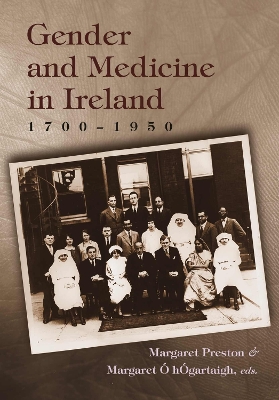Irish Studies
1 total work
The essays in this collection examine the intersections between gender, medicine, and conventional economic, political, and social histories in Ireland between 1700 and 1950. Gathering many of the top voices in Irish studies and the history of medicine, the editors cover a range of topics including midwifery, mental health, alcoholism, and infant mortality.
Composed of thirteen chapters, the volume includes James Kelly's original analyses of eighteenth-century dental practice and midwifery, placing the Irish experience in an international context. Greta Jones, in an exploration of a disease that affected thousands in Ireland, explains the reasons for higher tuberculosis mortality among women. Several essays call attention to the attempted containment of disease, exploring the role of asylums and the gendered attitudes toward insanity and reform. Contributors highlight the often neglected impact of nurses and midwives, occupations traditionally dominated by women.
Presenting a social history of Irish medicine, the disparate essays are united by several common themes: the inherent danger of life in eighteenth- and nineteenth-century Ireland, the specific brutality of women's lives at the time, and the heroics of several enlightened figures.
Composed of thirteen chapters, the volume includes James Kelly's original analyses of eighteenth-century dental practice and midwifery, placing the Irish experience in an international context. Greta Jones, in an exploration of a disease that affected thousands in Ireland, explains the reasons for higher tuberculosis mortality among women. Several essays call attention to the attempted containment of disease, exploring the role of asylums and the gendered attitudes toward insanity and reform. Contributors highlight the often neglected impact of nurses and midwives, occupations traditionally dominated by women.
Presenting a social history of Irish medicine, the disparate essays are united by several common themes: the inherent danger of life in eighteenth- and nineteenth-century Ireland, the specific brutality of women's lives at the time, and the heroics of several enlightened figures.
